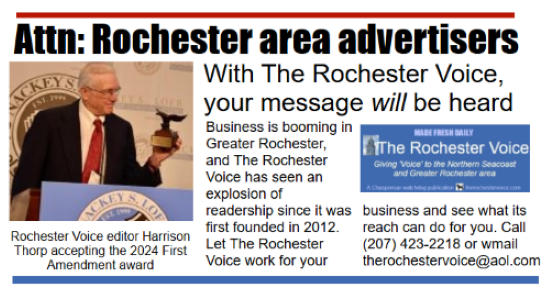To the editor:
The Right to Know Law is meant to provide transparency and accountability in our government, but citizens often run into roadblocks attempting to get public bodies and agencies to live up to the letter and spirit of the law.
RTKNH receives citizen complaints from across the state as we are a resource people turn to when they feel their public officials are not lawfully responding to their right to know requests. In 2018, we received 68 inquiries. This was a 15% increase over 2017.
In 2015, the Center for Public Integrity, winner of the Pulitzer Prize, evaluated the freedom of information laws of all 50 states as part of its State Integrity Investigation. In the Category of Public Access to Information, New Hampshire earned a grade of F, and ranked 49th out of 50 states. In the category titled "In practice, citizens can resolve appeals to access to information requests within a reasonable time period and cost," New Hampshire received a score of 0.
Those findings summarized what many Right to Know advocates already knew. In New Hampshire, the burden to resolve Right to Know complaints is very high for citizens because one has to file a petition in Superior Court.
Senate Bill 313 was created based on the recommendations of the 13 member Legislative Right-to-Know Study Commission created by the passage of HB 178 in 2017. I was one of the 13 members on the Study Commission. I was also one of the members tasked with writing the Final Report published by the Study Commission.
After two months of meetings, a cross representation of stakeholders, including the NHMA, unanimously agreed that citizens need a grievance resolution process which is easier, cheaper, faster and results in less cost for all parties. Establishing an independent Ombudsman and a Citizens' Right-to-Know Appeals Commission was the unanimous recommendation after considering a number of alternatives.
While there is a cost to hiring the Ombudsman there will be considerable savings to offset the costs to taxpayers. By avoiding litigation, public bodies and agencies will often be spared court costs and attorney fees. In the court case of Porter v. Town of Sandwich the town paid more than $200,000 in attorney fees. The town of Tuftonboro paid over $20,000 in legal fees and lost their Right-to-Know lawsuit. Last year, several State Representatives were forced to file a lawsuit against the Coakley Landfill Group because that group failed to provide documents requested under the Right-to-Know Law. Again, tax dollars were spent on legal fees to resolve this complaint.
While the Ombudsman will resolve the complaints, the Appeals Commission will serve a critical role which includes establishing policies and procedures for the Appeals process and educating interested parties on the Right-to-Know Law to increase awareness, compliance, and minimize future violations. The Commission will also compile statistics and make recommendations to the legislature concerning proposed changes to the law. Please contact your legislators and ask them to support this bill which creates a low cost, speedy, credible, and impartial grievance resolution process for citizens and public bodies.
- David Saad,
President, Right to Know NH















